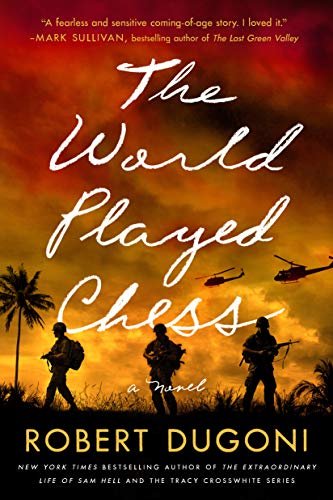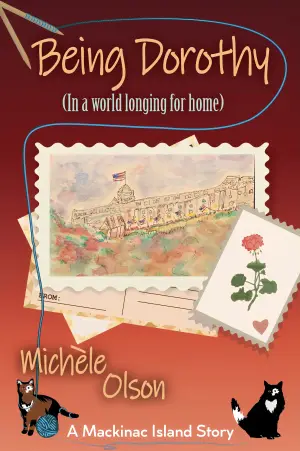The World Played Chess: A Journey Through Time and Self-Discovery
There’s something deeply evocative about Robert Dugoni’s writing; it has a way of wrapping around your heart and mind, pulling you into the emotional depths of his characters. When I first picked up The World Played Chess, I was struck by its promise—stories of young men grappling with their identities against the backdrop of pivotal historical moments. As a long-time fan of Dugoni’s series work, I was eager to see what he’d crafted here in this standalone novel that feels at once personal and universal.
The narrative weaves together three distinct timelines, immersing us in the lives of Vincent Bianco, his son Beau, and Vietnam soldier William, all of whom embark on their own journeys of self-discovery. Set initially in the summer of 1979, Vincent grapples with the excitement and uncertainty of post-high school life as he takes a job with a construction crew. Through his interactions with fellow workers William and Todd, who both bear the marks of their experiences in Vietnam, Vincent begins to realize that the struggles of adolescence have deep roots in the harsh realities of adulthood—a theme that resonates throughout the book.
Dugoni deftly contrasts Vincent’s youthful naivety with the weight of William’s memories from 1968, skillfully interspersing journal entries that reveal the horrors of war. These poignant reflections not only highlight the trauma that continues to linger long after the fight is over but also challenge the reader to consider the broader implications of conflict and our understanding of heroism. I found myself captivated by William’s experiences, inspired by the way Dugoni captures the disillusionment and despair of a young man surrounded by death, all while the world at home remains blissfully unaware.
As the narrative unfolds in parallel to Beau’s contemporary struggles, the emotional core of the story deepens. Beau’s journey mirrors Vincent’s in revealing the importance of self-discovery amidst life’s inevitable challenges, drawing a thread of commonality through generations. Dugoni’s exploration of father-son dynamics felt particularly touching to me, as I, too, am navigating similar conversations with my own son.
Dugoni’s writing style is both elegant and accessible; he has a knack for pulling readers in with a compelling narrative momentum that never feels forced. The pacing of the book allows for moments of levity and seriousness, often intertwined in ways that kept me both entertained and reflective. I appreciated how each chapter alternated between the past and present, creating a rich tapestry into which I could delve deeply. In many ways, it made me confront my own life choices and the legacy of experiences I might pass down.
As I closed the final pages, I couldn’t help but feel a profound sense of connection to the characters and their journeys. The World Played Chess is a book that will resonate with anyone who has ever questioned their place in the world or the significance of their actions. It’s a poignant reminder that beneath the surface of our lives lies complexity, shared struggles, and the potential for growth.
For those who appreciate character-driven narratives infused with historical context and emotional depth, this book is a must-read. It’s a beautifully crafted piece that encourages contemplation and ultimately offers a sense of hope. Thank you, Robert Dugoni, for another memorable reading experience. I can’t wait to see what you have in store for us next!
If you’re curious about more thoughts on this book, check my full review posted on Mystery and Suspense, or explore my blog for more literary musings. Happy reading!
[ad_2]







